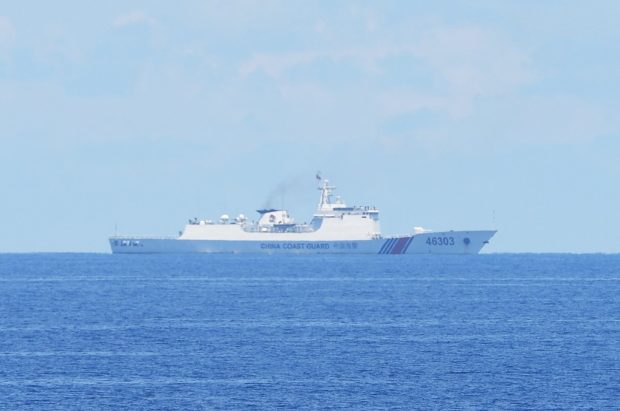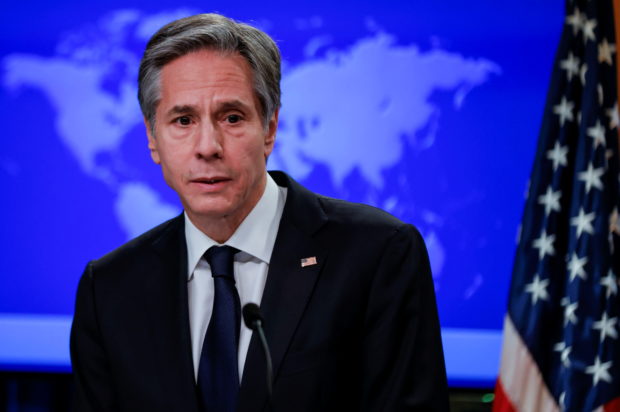
A Chinese Coast Guard ship monitors rescue exercise between Philippine and US Coast Guard vessels near Scarborough shoal in the South China Sea in 2019. (AFP)
MANILA, Philippines — United States Secretary of State Antony Blinken called on China to end its provocative behavior in the South China Sea as the Philippines marks the fifth anniversary of its arbitral victory before the Permanent Court of Arbitration on the Hague against Beijing’s expansive claims in the area.
“Nowhere is the rules-based maritime order under greater threat than in the South China Sea. The People’s Republic of China (PRC) continues to coerce and intimidate Southeast Asian coastal states, threatening freedom of navigation in this critical global throughway,” Blinken said in a statement Monday.
“We call on the PRC (People’s Republic of China) to abide by its obligations under international law, cease its provocative behavior, and take steps to reassure the international community that it is committed to the rules-based maritime order that respects the rights of all countries, big and small,” he added.
Blinken also reaffirmed Washington’s defense obligations under its Mutual Defense Treaty with Manila.

U.S. Secretary of State Antony Blinken (REUTERS)
“The United States reaffirms its July 13, 2020 policy regarding maritime claims in the South China Sea,” he said.
“We also reaffirm that an armed attack on Philippine armed forces, public vessels, or aircraft in the South China Sea would invoke U.S. mutual defense commitments under Article IV of the 1951 U.S.-Philippines Mutual Defense Treaty,” he added.
This, as he commemorated the July 2016 decision of the United Nations-backed Permanent Court of Arbitration in The Hague, which ruled in favor of the Philippines and invalidated China’s expansive claims in the South China Sea, including the West Philippine Sea.
Beijing, however, refuses to recognize the said ruling.
“The Tribunal stated that the PRC has no lawful claim to the area determined by the Arbitral Tribunal to be part of the Philippines’ exclusive economic zone and continental shelf,” Blinken said.
Both China and the Philippines, pursuant to their treaty obligations under the Law of the Sea Convention, “are legally bound to comply” with the decision of the Hague-based court, according to Blinken.
‘Freedom of the seas’
Washington’s top diplomat, meanwhile, stressed that “freedom of the seas” continues to be “vital to global peace and prosperity. “
Some of the about 220 Chinese vessels reported by the Philippine Coast Guard, and believed to be manned by Chinese maritime militia personnel, are pictured at Whitsun Reef, South China Sea, March 7, 2021. Picture taken March 7, 2021. (Philippine Coast Guard/National Task Force-West Philippine Sea/Handout via REUTERS)
“The international community has long benefited from the rules-based maritime order, where international law, as reflected in the UN Law of the Sea Convention, sets out the legal framework for all activities in the oceans and seas,” he said.
“This body of international law forms the basis for national, regional, and global action and cooperation in the maritime sector and is vital to ensuring the free flow of global commerce,” Blinken added.

